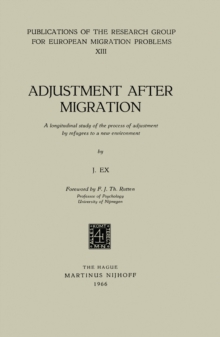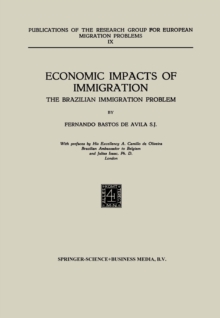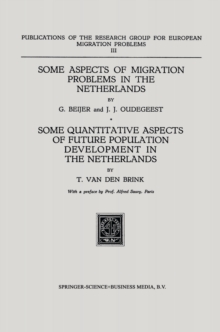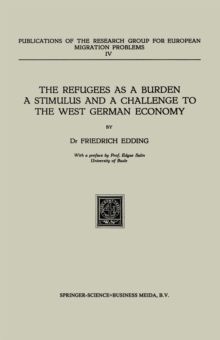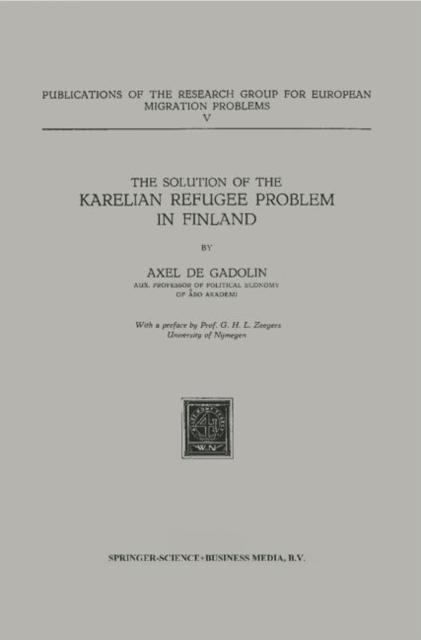
The Solution of the Karelian Refugee Problem in Finland Paperback / softback
by Axel Gadolin
Part of the Publications of the Research Group for European Migration Problems series
Paperback / softback
Description
Dr de Gadolin's study calls attention to a country, a people, and a problem about which in general much too little is known outside Finland.
To the extent that it was possible, the valiant and industrious Finnish people have endeavored to overcome the difficulties created by two wars and the consequent onerous peace terms.
One of the most stupendous problems was that of the Finnish refugees evacuated from the Karelian isthmus, Salla, Petsamo, and the leased peninsula of Porkala.
The lost territory, with a total area of 45,000 square kilometers, had important industrial plants and traffic networks, including the very important Saima Canal, and large expanses of arable land and forest.
Some 450,000 persons, or 12 percent of the total population at that time, had to be resettled in the remainder of Finland, particularly in the southern provinces.
In his detailed description of how this difficult problem was solved, even if at the cost of a sharpened inflation, Dr de Gadolin strongly emphasizes the financial and economic aspects.
It is fortunate for Finland that, though situated within the Russian sphere of influence, it nevertheless belongs to the Swedish-Finnish neutral bloc, and thus was able to maintain its economic relations with the West.
Information
-
Item not Available
- Format:Paperback / softback
- Pages:47 pages, 1 Illustrations, color; 1 Illustrations, black and white; XII, 47 p. 2 illus., 1 illus. in
- Publisher:Springer
- Publication Date:01/01/1952
- Category:
- ISBN:9789401504171
Information
-
Item not Available
- Format:Paperback / softback
- Pages:47 pages, 1 Illustrations, color; 1 Illustrations, black and white; XII, 47 p. 2 illus., 1 illus. in
- Publisher:Springer
- Publication Date:01/01/1952
- Category:
- ISBN:9789401504171
